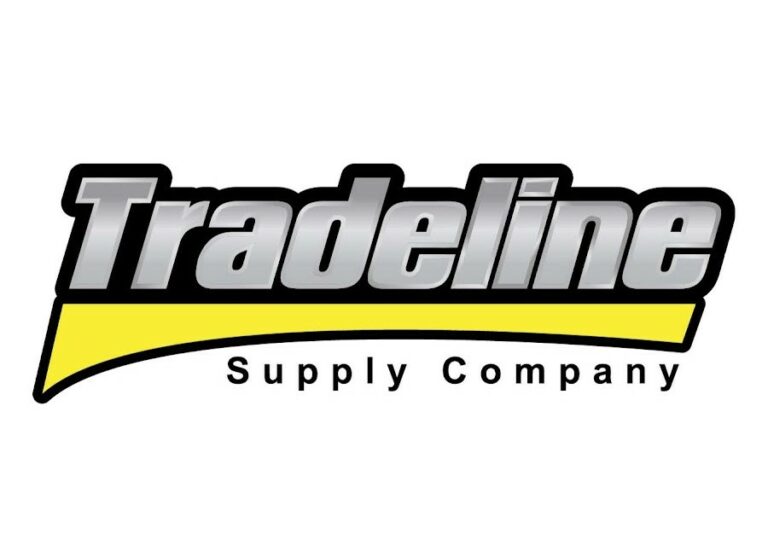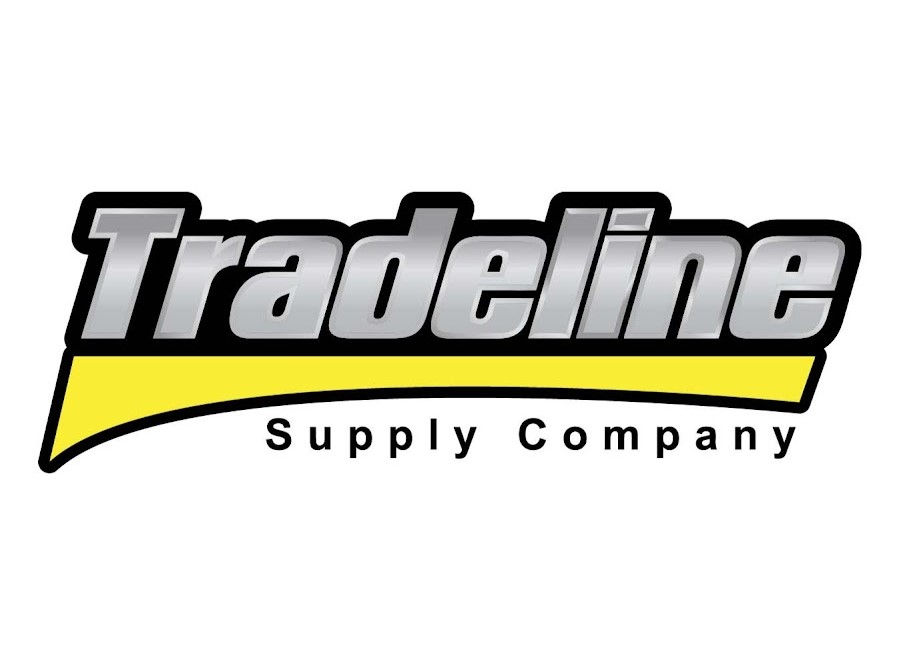What is Factoring for Small Businesses?

Invoice factoring is a financing strategy where a company sells its unpaid invoices to a third-party lending institution for a cash advance. The lender issues an advance as a percentage of the invoice’s value.
The lender owns the invoice and collects payment at the due date. Once the customer pays the invoice, the lender releases the remaining amount to the company that sold the invoice.
Invoice factoring is also called accounts receivable factoring or simply factoring receivables. The term is also used interchangeably with invoice financing, although that’s a different structure (more on that later). It’s one form of accounts receivable financing.
Why do small businesses use Invoice Factoring?

Factoring is particularly useful for small businesses. Many small businesses are in a catch-22 of needing working capital for daily operations while trying to grow and expand but not being large enough for traditional financing.
Factoring allows small businesses to convert receivables into working capital before their customers pay the invoice. That influx of cash is a valuable lifeline when a company struggles to cover expenses.
Small businesses also use factoring as a bridge loan until they become eligible for more traditional financing. It allows small businesses to stay in operation when they experience cash flow gaps.
What is an Invoice Factoring Company?

A factoring company is a lending institution that provides invoice factoring services. Most factoring companies are fintech businesses, although some banks also offer factoring. For example, the popular factoring company altLINE is a division of the Southern Bank.
Factoring companies purchase outstanding invoices, provide cash advances, and collect invoice payments. In some ways, the factoring company acts as a business’s back-office accounts receivable.
Let’s look at some of the key differences between different invoice factoring companies.
Factoring Fees
The first thing to consider is the cost. Invoice factoring will always be an expensive way to secure financing – but some companies are far more expensive than others. You want to make sure that you can afford the fees and that the cost of financing is worth it for your business.
Recourse vs. Non-Recourse
Recourse factoring means your company is liable if your customers default on their invoices. In non-recourse factoring, you don’t have to pay if your customers default due to specified reasons such as bankruptcy. Non-recourse factoring is more expensive, but the added protection might make it worth it.
Notification Factoring
Some factoring companies will notify your customers when they purchase the invoices, and others will not. If you don’t want your customers alerted when you sell their invoices, look for a company that doesn’t notify them. UCS doesn’t use notification factoring.
Additional Services
Some invoice factoring companies stand out because they offer enhanced services to help you process invoices. Some additional services to consider when looking for a factoring company include:
- Easy invoice uploads.
- Integration with your accounting software.
- Credit checks on your customers.
- A/R processing tools.
- Online portals or mobile apps for convenient processing.
How does Invoice Factoring work?

Invoice factoring is not a loan but rather a sale of accounts receivable to another company. Accounts receivable represent future money coming into a business and, as such, are recorded as an asset.
Like any asset, accounts receivable carry value and factoring is a method to liquidate that asset into cash. The process of converting the asset into cash requires working with a factoring company.
As mentioned, factoring companies are specialized lenders that recognize the value of accounts receivable and have the infrastructure to collect payments. When a business partners with a factoring company, it enters into a factoring agreement.
Factoring agreements include all rates and fees as well as terms and conditions. Carefully read any factoring agreement before signing on the dotted line.
The company will likely discuss the terms with a business before asking to sign the agreement. Specific information in the agreement includes:
- Discount or factor rate: The percentage the factoring company keeps as payment.
- Advances rate: the percentage of the invoice value that determines the cash advance.
- Additional fees: Origination fee, filing fee, etc.
- Minimum monthly volume: The number of invoices required per month (in dollars).
- Recourse or non-recourse factoring.
- Whole ledger, partial or spot factoring.
Once a business signs a factoring agreement, it begins factoring invoices. The steps in factoring go:
- Deliver the goods or services to the customer.
- Invoice the customer and include what it’s for, the price, and the due date.
- Send the invoice to the factoring company.
- After approval, the factoring company sends the cash advance to your business bank account.
- The factoring company then waits for the customer to pay.
- After receiving payment from the customer, the factoring company releases the remaining amount.
Factoring Example
ABC Web Services is a boutique IT and marketing agency providing professional website development for brick-and-mortar businesses that want to expand with an eCommerce platform. They offer marketing services, web design, and analytics. Its main competitive advantage is the proprietary software it uses to run eCommerce.
Clients typically pay their invoices monthly. ABC offers net 30 terms as an attractive incentive when onboarding new clients. The idea is that ABC gets the website running and generating revenue before the client pays.
And the pitch worked. ABC closed more clients when offering generous payment terms. Bringing on more clients leads to bringing in more staff to handle the work, increasing server costs, more rent for a larger workspace, and other expenses.
The booming business is excellent, but ABC may face cash flow gaps that could derail its positive momentum. The firm is still young, and its small ownership group doesn’t have great credit collectively.
The agency’s clients have established businesses with a strong credit history. So, when a factoring company considers its application, it looks at its clients’ credit history since they’re the ones that will ultimately repay the cash advance.
ABC Web Services gets approved for a factoring agreement with the following terms:
- Discount Rate: 2%
- Advance Rate: 90%
The agency factors receivables totaling $75,000. The factoring company applies the 2% discount rate and purchases the receivables for $73,500.
It then applies the 90% advance fate to the purchase price and issues a cash advance of $66,150. ABC receives the cash advance via ACH transfer within 24-48 hours.
The remaining $7,350 goes into a reserve account. The reserve acts as security in case the clients are late paying. The 2% discount rate applies every 30 days the customer doesn’t pay. So, if a customer is late, the additional charges come from the reserve account.
Fortunately, ABC Web Services’ clients are reliable and pay on time. The factoring company releases the remaining amount.
What Factoring Companies are best for small businesses?
There’s no definitive way to determine the best invoice factoring company for your business. Each company offers unique advantages and disadvantages.

That being said, we can help identify the most reputable invoice factoring companies. You can review our lists of the best overall factoring companies and the best factoring companies for trucking. Here are the five best factoring companies for small businesses.
altLINE
- Advance Rate: 85%-95%
- Discount rate: 0.5% – 5%
- Funding time: 1-3 business days, but varies
altLINE is the invoice factoring wing of The Southern Bank, based out of Alabama. Since the community bank funds altLINE’s invoice factoring, it can keep rates competitive.
The factoring company’s advance rates range from 85%-90%, and their discount rates start as low as 0.5%. The discount rate caps out at 5% if customers take longer than 30 days to pay their invoices.
altLINE does not offer invoice factoring to trucking or freight companies, which is uncommon in invoice factoring. It does provide excellent rates for all other industries, though.
Applying to altLINE:
You can complete the questionnaire on altLINE’s website to get a quote. A specialist from the company will call you back to discuss your options.
altLINE does not have a minimum credit score or time in business. It does require a minimum monthly revenue of $15,000.
Triumph
- Advance Rate: Up to 100%
- Discount rate: 1%-4%
- Funding time: 24-48 hours.
Triumph Business Capital specializes in invoice factoring for trucking and freight companies. The trucking industry utilizes invoice factoring more than any other industry.
Triumph offers additional incentives like a fuel card program, insurance, and equipment financing. The company also offers invoice factoring to staffing companies, oil and gas, manufacturing, telecommunications, and service businesses.
Triumph’s discount rates range from 1% to 4%, and it offers a 100% advance rate with no reserves. It offers both recourse and non-recourse financing.
In some cases, it’s possible to receive same-day funding. Complete the online application or call Triumph to apply.
Riviera Finance
- Advance Rate: up to 95%
- Discount rate: start at 2%
- Funding time: 24 hours
Riviera Finance offers non-recourse factoring, and it is one of the longest-running factoring companies available. The company’s unique credit guarantee sets them apart from other factoring companies.
The company’s credit management service guarantees credit on all invoices, so Riviera Finance assumes the risk as the credit manager. Companies factoring invoices through Riviera get peace of mind knowing they are not responsible if a customer doesn’t pay their invoice.
Riviera Finance offers a convenient online portal with 24/7 access to your invoice information. The company uses integrated tools to provide support as an accounts receivables partner.
It’s also a good option for businesses that need funds quickly. Once approved, the company provides funding for invoices within 24 hours. Advance rates go up to 95%.
Applying to Riviera Finance:
You can apply in person at one of the company’s 25 locations, complete an online application, or call them directly.
Riviera does not have minimum requirements for credit score, time in business, or revenue. Credit decisions are based on your customer’s creditworthiness.
eCapital
- Advance Rate: up to 100%
- Discount rate: Starts at 1%
- Funding time: Same day to 48 hours
eCapital Commercial Finance provides several business financing products, including invoice factoring. The company is great for startups and younger businesses as it doesn’t have minimum requirements that would generally exclude those businesses.
The factoring company offers advance rates of up to 100%, which is one of the best in the industry. Discount rates range from 1% to 5%, and they currently offer a 90-day trial period.
eCapital offers both recourse and non-recourse invoice factoring. The company provides some of the quickest funding times in the industry, with same-day funding possible in some cases.
Invoice factoring customers gain access to eCapital’s database of over 40,000 companies and can run unlimited credit checks. The tool allows small business owners to run credit checks on their customers before factoring their invoices.
Applying to eCapital:
Complete an online questionnaire and then speak to a company representative. It’s possible to get approved and funded the same day you apply.
eCapital does not have minimum requirements. Any business with a verifiable invoice can apply.
Bluevine
- Advance Rate: 85%-90%
- Discount rate: Starting at 0.25% per week.
- Funding time: 24 hours
Bluevine offers invoice factoring to small and medium size businesses. It only works with B2B companies, as traditional consumer invoices are not accepted.
When you register with Bluevine, you can decide which invoices to factor. There are no mandatory requirements on how many or what percentage of your invoices to factor with the company.
Once you apply and get approval, you can sync your accounting software to Bluevine and begin uploading invoices. You can also upload them manually if you prefer.
Once you submit an invoice, you’ll receive the funds at the advance rate in 24 hours. You get the rest of the money when your customer pays their invoice, minus any fees.
Applying to Bluevine:
The application process takes less than 10 minutes. You can apply online at the company’s website or through United Capital Source.
The minimum qualifications for Bluevine invoice factoring are:
- A personal credit score of 530+.
- $10,000 in monthly revenue.
- 3+ months in business.
How to apply for Invoice Factoring:

You can apply for invoice factoring through United Capital Source. Follow these instructions to apply for invoice factoring.
Step 1: Make sure your customer is reliable
Factoring invoices only works when your customers pay their invoices on time and in full. Ensure you’re certain your customers will pay before contacting a factoring company.
Step 2: Gather your documentation
When you apply, the factoring company needs to review the following documents:
- Driver’s license.
- Voided business check.
- Banks statements from the previous three months.
- Business tax return.
- Accounts receivable aging report, Accounts payable report, debt schedule.
Step 3: Apply
You can complete our one-page application or give us a call to apply. Either way, you’ll need to provide the information above and the invoice amount you want to sell.
Step 4: Speak to a representative
Once you apply, one of our representatives will reach out to discuss the factoring fee, factoring rate, and terms attached to the sale. You’ll get an upfront breakdown of all costs, so you don’t have to worry about hidden fees.
Step 5: Receive approval
The entire process takes about two weeks to finalize. Funds will appear in your bank account 1-2 days after completing the application.
Frequently Asked Questions

Here are some of the most common questions about factoring.
Is Factoring the same as Invoice Financing?

No, invoice factoring and invoice financing are two different structures. They share some similarities, and both methods convert receivables into cash. But there are some key differences as well.
Invoice financing is a loan that adds to a company’s debt. The business retains ownership of its accounts receivable and repays the loan it collects payment from its customers.
Instead of a discount rate, invoice financing carries an interest. The costs of the discount rate and interest rate are similar, though.
Invoice factoring is not a loan and doesn’t add to a company’s debt. It’s a sale of receivables, which is reflected in financial statements and taxes.
The factoring company owns the receivables and collects payment from the selling company’s customers.
Can small businesses with bad credit get Invoice Factoring?

Yes, getting approved for invoice factoring with bad credit is possible. In fact, that’s one of the main advantages.
Since repayment comes from your customers paying their invoices, factoring companies look more closely at their credit than yours. Some invoice factoring companies don’t have any credit score requirements.
The companies that set a minimum credit score often set it low. For example, some factoring companies only require a minimum credit score of 550.
We should note that it’s an expensive form of business financing. In addition, you cannot build or repair credit using invoice factoring.
What are my other financing options?

Factoring is a form of working capital financing. If neither invoice factoring nor reverse factoring works for your business, there are several loan options to secure working capital.
Consider any of the following small business loans:
- Working capital loans.
- Equipment financing.
- Merchant cash advance.
- SBA loans.
- Revenue-based loans.
- Business lines of credit.
- Business term loans.
What are the advantages of Small Business Factoring?

Invoice factoring qualifications are less stringent than a loan, and approval depends more on your customers’ credit than yours. Some factoring companies don’t require a minimum credit score.
Invoice factoring isn’t a loan, so you don’t incur any debt. It’s a viable alternative for companies in urgent need of funding that don’t want to add to their debt.
Some companies prefer that the factoring company collects on the invoice. It can save time and money since the factor essentially acts as your collections department. Although, some businesses do prefer to maintain a direct relationship with their customers. If this applies to you, look for a company that doesn’t notify your customers when it acquires their invoices.
The most significant benefit is turning accounts receivable into working capital. Unpaid invoices are like unsold inventory – the longer it goes without converting into cash for your business, the less profitable it becomes. Invoice factoring lets you unlock that capital sooner so you can reinvest it into your business.
What are the disadvantages of Small Business Factoring?

The biggest drawback is that invoice factoring is more expensive than traditional loans. Like most near-term and short-term financing, invoice factoring carries higher rates and fees than conventional business loans.
Due to the complex nature of receivables factoring, it’s also difficult to compare costs to a loan or other forms of financing. The time it takes for your customers to pay their invoices determines your factoring fee, so the cost could vary.
While you don’t need good credit for approval, your customers do. If your customers are unreliable and already paying late, you are unlikely to get approved. Invoice factoring works best for companies that sell on credit to creditworthy businesses.
Factoring accounts receivable is not the only way to avoid late payments and convert invoices into cash. Sometimes all you need to do is improve billing. You can try automating your invoices, giving customers more ways to pay, and improving your collections team’s efforts.
We prepared a pros and cons list for a quick summary.
Pros & Cons:

Pros:
- Turn unpaid invoices into cash.
- Easier to qualify for than other business financing options.
- You can use the funds for a variety of business purposes.
- Invoices are the collateral.
Cons:
- Higher rates & fees than traditional loans.
- Fees are based on how long customers take to pay their invoices.
Small Business Factoring – Final Thoughts

Invoice factoring is best for small businesses that need an immediate influx of cash to cover daily expenses. The rates are higher than other forms of business financing, but the cost is worth it if it allows the company to grow while maintaining the business.
Contact us to discuss invoice factoring for your small business. Our dedicated loan experts will go over the best financing options to meet your business needs.











